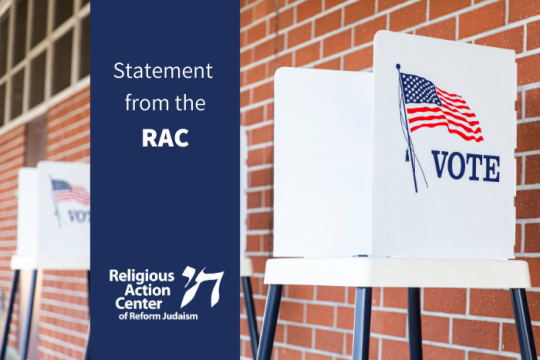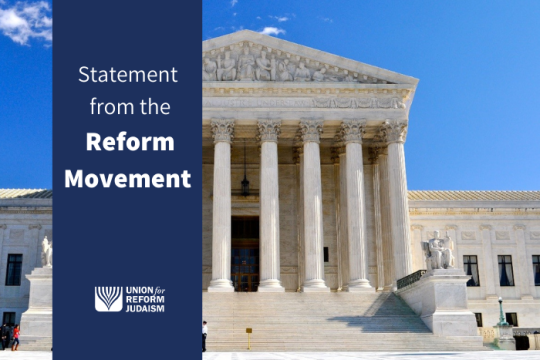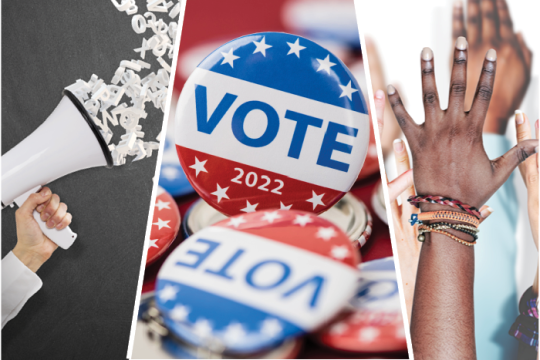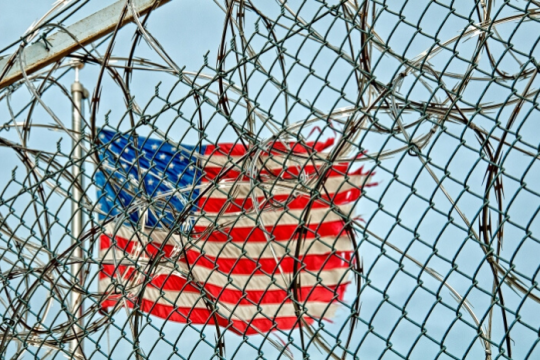
The Torah teaches to accept others without prejudice and to work with others to achieve social justice. Since the enactment of the Civil Rights Act of 1964 and the Voting Rights Act of 1965, the Jewish community has continued its support of civil rights laws addressing systemic discrimination in voting, housing, and employment against not only women and people of color but also the LGBTQ community and people with disabilities.
Learn About the RAC and the Civil Rights Movement
The RAC's work on voting rights and democracy is made possible in part by the Leo and Libby Nevas Foundation.
Request your free download: Every Voice Matters: Conversations about Voting & Democracy, with conversation questions to foster respectful, open-hearted conversations in this election season, and beyond. For teens and adults.
Download our free Grow a Good Citizen: Every Voice, Every Vote activity book for kids ages 5-12, crafted with content from Highlights Magazine. It's packed with inspiring short stories, engaging games, and mind-teasing puzzles that educate and inspire action around voting and democracy, to help make sure everyone's voice is heard.
Download our free guide Grow a Good Citizen: Talking with Kids about Voting and Democracy. Talking with your kids about democracy and the election process communicates your values and helps children make sense of what they may hear on TV, at school, from friends, and around the dinner table.
Engage Your Congregation
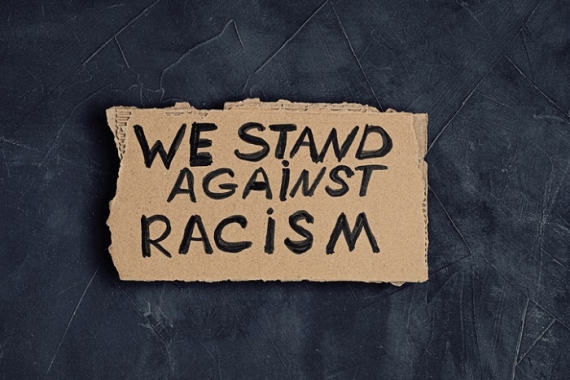
The Reform Movement's Racial Justice Campaign
Join the leaders of the Reform Movement as we examine and address our own behaviors, practices, and policies, through the lens of racial equity, diversity, and inclusion (REDI) and outwardly to pursue targeted, strategic advocacy that could change laws and policies that impact our society.

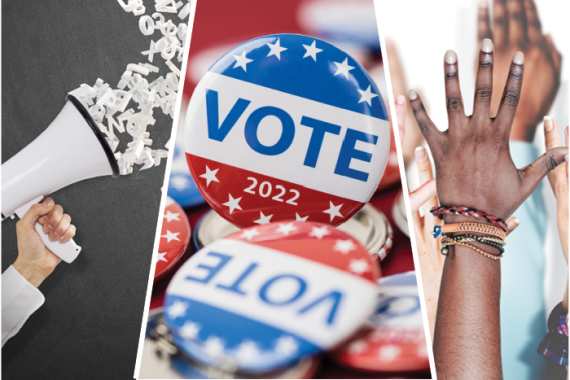
Every Voice, Every Vote
The Reform Jewish Movement’s Every Voice, Every Vote Campaign is a nonpartisan effort, grounded in our Jewish values and commitment to racial justice, to strengthen our democracy by encouraging and protecting voter participation.
Why We Care about Civil Rights & Voting Rights
The Sage Hillel taught "Al tifros min hatzibur, Do not separate yourself from the community" (Pirke Avot 2:5). Moreover, it is our responsibility to play an active role in our community and choosing its leaders.
Rabbi Yitzhak taught that "A ruler is not to be appointed unless the community is first consulted" (Babylonian Talmud Berachot 55a). Rabbi Yitzhak further explained that in the Torah, Bezalel could be chosen to build the Tabernacle only with the community's approval. This deeply embedded ethic of political participation has guided Jews to enthusiastically participate in the American electoral process.
Jews played an active role in the dramatic civil rights struggles of the 1950s and 1960s, a movement that ultimately granted citizens of color unfettered access to the franchise. Indeed, the Voting Rights Act of 1965 was partially drafted in the conference room of the Religious Action Center of Reform Judaism, under the aegis of the Leadership Conference on Civil Rights. Given our longstanding commitment to the civil rights struggle, ongoing voter suppression and disenfranchisement, which disproportionately impacts Voters of Color. It is our duty to ensure all voters can safely and freely cast our ballots so that every voice is heard and our elections reflect the will of the people. Only through national standards for voting access can we make the promise of democracy real for us all.
As Reform Jews, we must heed the teachings of our tradition that speak to the dangers of mixing money and politics and recognize the distorting effect that money can have on a leader’s ability to govern fairly. We are reminded of this teaching from Deuteronomy 16:19, "You shall not judge unfairly: you shall know no partiality; you shall not take gifts, for gifts blind the eyes of the discerning and upset the plea of the just." We are commanded to stand up for the widow, the poor, the orphan and the stranger. In a system that allows for disproportionate power of money, it is these groups who are ignored and who suffer the most.
Take Action
Urge Congress to enact policing reforms
George Floyd, Ahmaud Arbery, Breonna Taylor, and Dreasjon “Sean” Reed are just some of the latest victims of the nation’s long history of brutality against People of Color, and particularly Black men. Urge your members of Congress to support comprehensive policing reforms in the 117th Congress.
Urge Congress to Restore Voting Rights
On June 25, 2013, the Supreme Court ruling in Shelby County v. Holder invalidated parts of the Voting Rights Act. In the aftermath of the Court’s misguided decision, many states have tested the extent to which they can legally limit citizens’ access to the ballot box by introducing--and in many cases passing--restrictive voting laws.
Related Issues
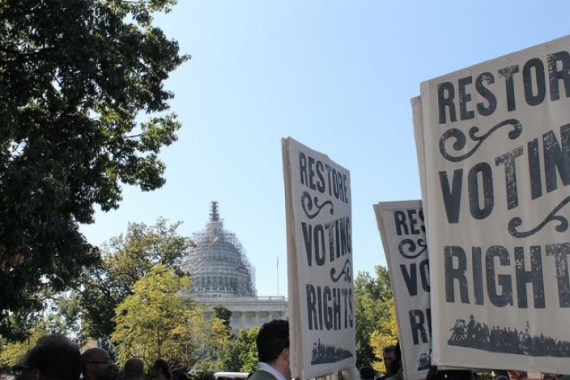
Voting Rights
Free and fair elections are a cornerstone of democracy. However, for the duration of its history, the United States has been plagued by disenfranchisement and voter suppression.

Reparations
Systemic racial oppression in the United States began four hundred years ago with the institution of slavery and it was inextricably intertwined with the development of the American economy and of the nation overall.

Campaign Finance Reform
Campaign finance refers to fundraising and spending involved in candidates’ run for office. These campaigns cost a great deal of money; from travel expenses to advertisements and compensation of staff, enormous financial burdens come with running for office.
What's New
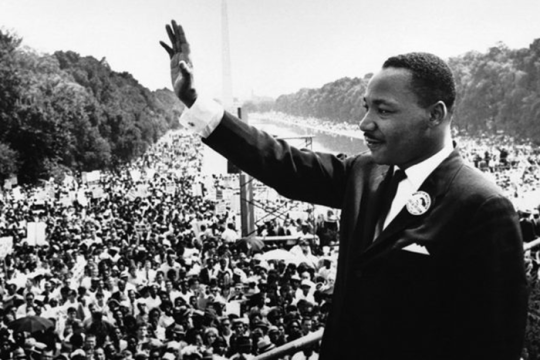
Honoring the Legacy of the Rev. Dr. Martin Luther King Jr.

Reflections on a Special Martin Luther King, Jr. Day
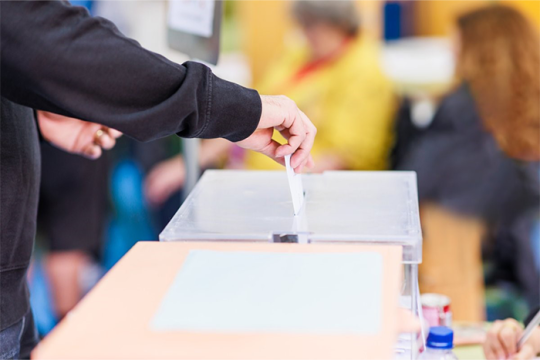
Ensuring Voices are Heard and Votes Counted
Related Press Releases
Reform Movement Celebrates the Reintroduction of the Freedom to Vote Act
Reform Movement Applauds Supreme Court’s Decision in Allen v. Milligan
Reform Jewish Movement Launches National Voter Mobilization Campaign Ahead of 2022 Elections
RAC Email Sign Up
Learn more about the RAC's key issues and get involved by signing up for the legislative updates newsletter.
Reform Judaism's Resolutions on Civil Rights and Voting Rights
Learn more about the position of the Reform Movement on these key issues, and read the formal resolutions by URJ and CCAR.

Contact our Legislative Assistants
For more information on this issue, contact Eric Goldberg.
